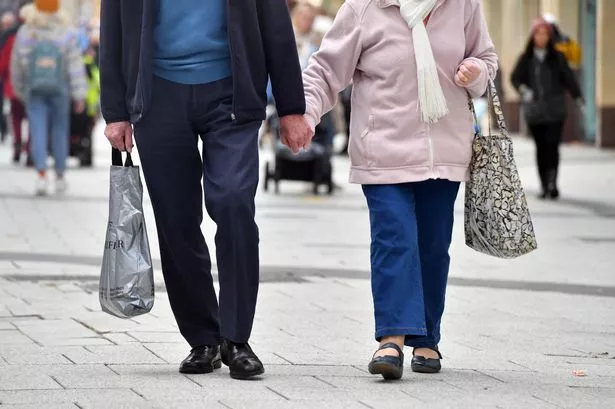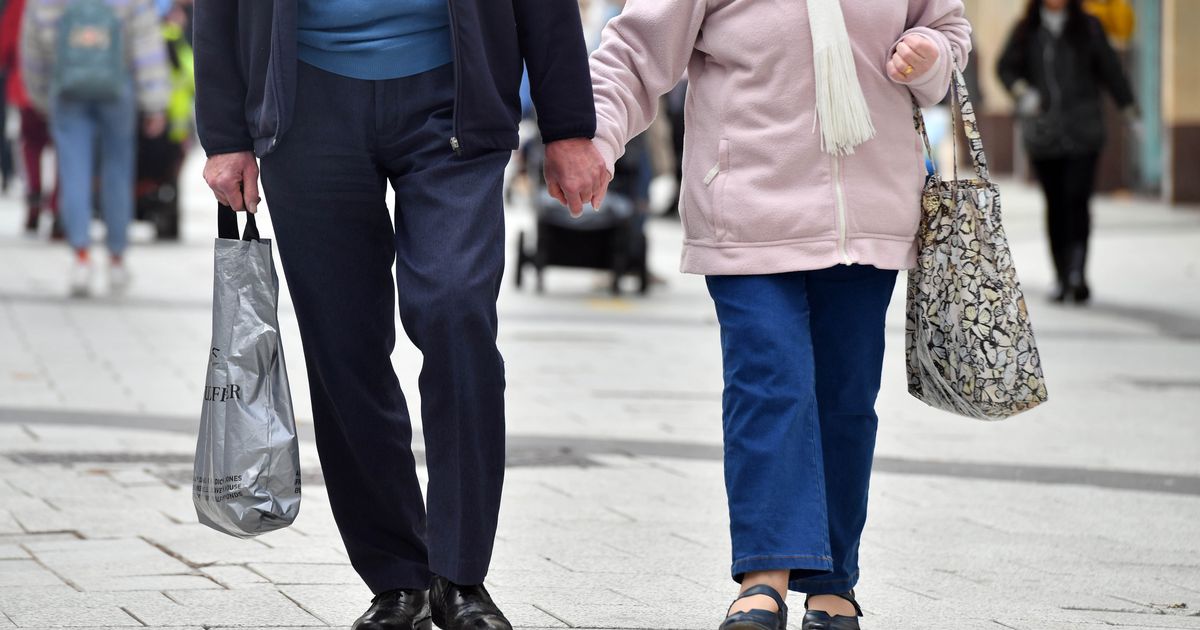Pensioners with a taxable income over £35,000 will have the payment clawed back in one of two ways Not all pensioners will be allowed to keep their Winter Fuel Payment (Image: Rob Browne)
Not all pensioners will be allowed to keep their Winter Fuel Payment (Image: Rob Browne)
Millions of pensioners will be getting up to £300 cash from the Department for Work and Pensions (DWP) from November.
Winter Fuel Payments are being handed out to people born before September 22, 1959, to help them with the cost of living during the coldest months of the year, when they may need extra cash to heat their homes.
However, this year, only pensioners with an income below £35,000 a year are eligible to keep the payment, which is worth between £100 and £300.
Instead of sending the payments to eligible people only, the government will be sending a payment to all pensioners – aside from those who have already opted out of receiving one.
Pensioners who are above the £35,000 income threshold will then have the payment taken back by HMRC via a tax payment. There are two ways the tax department will take back the cash, depending on how you usually pay tax.
You can check on the gov.uk website if HMRC will take back your Winter Fuel Payment here.
Below, we’ve explained who gets to keep the cash and who must pay it back, as well as how HMRC will recover the money.
Who has to pay back the Winter Fuel Payment?
Winter Fuel Payments will land in bank accounts during November and December.
The deadline to opt out of getting the payment has already passed. That means anyone who has not opted out, and was born before September 22, 1959, will get the payment sent automatically to their bank account.
You can keep the payment as long as your income is below £35,000.
If your income is above £35,000, HMRC will take the payment back.
 Pensioners will only keep the money if they have an income of below £35,000 (Image: Getty Images)
Pensioners will only keep the money if they have an income of below £35,000 (Image: Getty Images)
Approximately two million individuals in England and Wales are over State Pension age and have taxable income of above £35,000, according to the government. Taxable income includes earnings and pensions as well as savings interest and taxable state benefits.
HMRC has confirmed that it will recover the money from people with an income of over £35,000 in one of two ways – either through the PAYE system, or via your Self Assessment tax return.
The government has clarified that nobody will need to register with HMRC to do this.
How to pay it back via PAYE
The majority of pensioners who have to pay back their Winter Fuel Payment will do so through the PAYE system.
PAYE stands for Pay As You Earn. It the system that HMRC uses to collect income tax and National Insurance contributions in the UK.
If you are on the PAYE system, the money will be recovered automatically.
HMRC will change your tax code – which determines how much tax you pay each month – for the 2026/2027 tax year. The money will be recovered each month straight from your income, starting in April 2026.
For example, someone who had to pay back a Winter Fuel Payment worth £200, would see approximately £17 per month deducted via this method.
How to pay it back if you complete a Self Assessment tax return
If you usually submit a Self Assessment tax return then you will pay your Winter Fuel Payment back this way instead.
If you are in this group, you do not need to include the payment in this year’s tax return (2024/2025).
People who do their tax return online will see the payment automatically included on their 2025/2026 tax return, which is due by January 31, 2027. If it is not already included, you should add it yourself.
People who file a paper Self Assessment tax return will need to include the payment amount in their 2025/2026 tax return, which is due by October 31, 2026.
No one needs to register for Self Assessment to pay back their Winter Fuel Payment. This method is only for those who already file a Self Assessment tax return.
Can you pay Winter Fuel Payment back straight away?
No. HMRC has confirmed that pensioners above the income threshold will need to wait for HMRC to take back the payment via the above methods. The Winter Fuel Payment can not be paid back any sooner.

